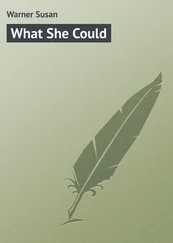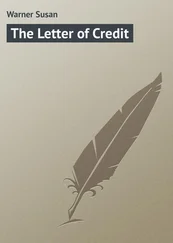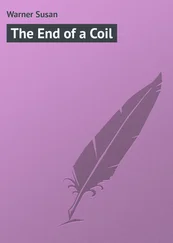Susan Warner - A Red Wallflower
Здесь есть возможность читать онлайн «Susan Warner - A Red Wallflower» — ознакомительный отрывок электронной книги совершенно бесплатно, а после прочтения отрывка купить полную версию. В некоторых случаях можно слушать аудио, скачать через торрент в формате fb2 и присутствует краткое содержание. Жанр: foreign_prose, foreign_language, на английском языке. Описание произведения, (предисловие) а так же отзывы посетителей доступны на портале библиотеки ЛибКат.
- Название:A Red Wallflower
- Автор:
- Жанр:
- Год:неизвестен
- ISBN:нет данных
- Рейтинг книги:4 / 5. Голосов: 1
-
Избранное:Добавить в избранное
- Отзывы:
-
Ваша оценка:
- 80
- 1
- 2
- 3
- 4
- 5
A Red Wallflower: краткое содержание, описание и аннотация
Предлагаем к чтению аннотацию, описание, краткое содержание или предисловие (зависит от того, что написал сам автор книги «A Red Wallflower»). Если вы не нашли необходимую информацию о книге — напишите в комментариях, мы постараемся отыскать её.
A Red Wallflower — читать онлайн ознакомительный отрывок
Ниже представлен текст книги, разбитый по страницам. Система сохранения места последней прочитанной страницы, позволяет с удобством читать онлайн бесплатно книгу «A Red Wallflower», без необходимости каждый раз заново искать на чём Вы остановились. Поставьте закладку, и сможете в любой момент перейти на страницу, на которой закончили чтение.
Интервал:
Закладка:
'Papa,' she said, in some bewilderment, 'I think somebody has been at my flowers; there is some green gone.'
'I took out some sprigs of laurel and holly,' said her father. 'I cannot have any Christmas decorations here.'
'Oh, papa, Pitt did not mean them for any such thing!'
'Whether he meant it or no, I prefer not to have them there.'
Esther was silenced, but she watched her vase with rather anxious eyes after that time. However, there was no more meddling; the brilliant blossoms were allowed to adorn the place and Esther's life as long as they would, or could. She cherished them to the utmost of her knowledge, all the rather that Pitt was gone away again; she gave them fresh water, she trimmed off the unsightly dry leaves and withered blossoms; but all would not do; they lasted for a time, and then followed the law of their existence and faded. What Esther did then, was to fetch a large old book and lay the different sprigs, leaves or flowers, carefully among its pages and put them to dry. She loved every leaf of them. They were associated in her mind with all that pleasant interlude of Christmas: Pitt's coming, his kindness; their going after greens together, and dressing the house. The bright interlude was past; Pitt had gone back to college; and the little girl cherished the faded green things as something belonging to that good time which was gone. She would dry them carefully and keep them always, she thought.
A day or two later, her father noticed that the vase was empty, and asked Esther what she had done with her flowers?
'They were withered, papa; they were spoilt; I could not keep them.'
'What did you do with them?'
'Papa, I thought I would try to dry them.'
'Yes, and what did you do with them?'
'Papa, I put them in that old, odd volume of the Encyclopaedia.'
'Bring it here and let me see.'
Much wondering and a little discomfited, Esther obeyed. She brought the great book to the side of the sofa, and turned over the pages carefully, showing the dried and drying leaves. She had a great love to them; what did her father want with them?
'What do you propose to do with those things, when they are dry? They are staining the book.'
'It's an old book, papa; it is no harm, is it?'
'What are you going to do with them? Are they to remain here permanently?'
'Oh, no, sir; they are only put here to dry. I put a weight on the book. They will be dry soon.'
'And what then?'
'Then I will take them out, papa. It's an old book.'
'And what will you do with them?'
'I will keep them, sir.'
'What is the use of keeping the flowers after their beauty is gone? I do not think that is worth while.'
' Some of their beauty is gone,' said Esther, with a certain tenderness for the plants manifested in her manner, – 'but I love them yet, papa.'
'That is not wise, my child. Why should you love a parcel of dry leaves? Love what is worthy to be loved. I think I would throw them all in the fire.'
'Oh, papa!'
'That's the best, my dear. They are only rubbish. I object to the hoarding of rubbish. It is a poor habit.'
The colonel turned his attention again to his book, and perhaps did not even remark how Esther sat with a disconsolate face on the floor, looking at her condemned treasures. He would not have understood it if he had seen. In his nature there was no key to the feeling which now was driving the tears into Esther's eyes and making her heart swell. Like many men, and many women, for the matter of that, Colonel Gainsborough had very little power of association. He would indeed have regarded with sacred reverence anything that had once belonged to his wife, down to her shoe; in that one instance the tension of feeling was strong enough to make the chords tremble under the lightest touch. In other relations, what did it matter? They were nothing to him; and if Colonel Gainsborough made his own estimate the standard of the worth of things, he only did what I am afraid we all do, more or less. At any rate, his was not one of those finer strung natures which recognise the possibility of worlds of knowledge and feeling not open to themselves. It is also just possible that he divined his daughter's sentiment in regard to the flowers enough to be jealous of it.
But Esther did not immediately move to obey his order. She sat on the floor with the big book before her, the open page showing a half dry blossom of the Mecranthon geranium which was still to her eyes very beautiful. And all the associations of that pleasant Christmas afternoon when Pitt had brought it and told her what its name was, rose up before her. She was exceedingly unwilling to burn it. The colonel perhaps had a guess that he had given a hard command; for he did not look again at Esther or speak to her, or take any notice of her delay of obedience. That she would obey he knew; and he let her take her time. So he did not see the big tears that filled her eyes, nor the quiet way in which she got rid of them; while the hurt, sorrowful, regretful look on her face would have certainly moved Pitt to indignation if he had been where he could see it. I am afraid, if the colonel had seen it, he would have been moved quite in a different way. Not to anger, indeed; Colonel Gainsborough was never angry with his child, as truly she never gave him cause; but I think he would privately have applauded the wisdom of his regulation, which removed such objects of misplaced sentiment out of the way of doing further harm. And Esther sat and looked at the Mecranthon, brushed away her tears softly, swallowed her regrets and unwillingness, and finally rose up, carried her book to the fire, and one by one, turning the leaves, took out her drying favourites and threw them into the glowing grate. It was done; and she carried the book away and put it in its old place.
But a week later it happened that Esther bethought her to open the Encyclopaedia again, to look at the marks her flowers had left on the pages. For they had stained the book a little, and here and there she could discern the outline of a sprig, and trace a faint dash of colour left behind by the petals of some flower rich in its dyes. If it appears from this that the colonel was right in checking the feeling which ran to such extremes, I cannot help that; I am reporting the facts. Esther turned over the book from one place to another where her flowers had lain. Here had been heath; there coronilla; here – oh, here was still the wallflower! Dried beautifully; delicate and unbroken, and perfect and sweet. There was nothing else left, but here was the wallflower. A great movement of joy filled Esther's heart; then came a doubt. Must this be burned too? Would this one little sprig matter? She had obeyed her father, and destroyed all the rest of the bouquet; and this wallflower had been preserved without her knowledge. Since it had been saved, might it not be saved? Esther looked, studied, hesitated; and finally could not make up her mind without further order to destroy this last blossom. She never thought of asking her father's mind about it. The child knew instinctively that he would not understand her; a sorrowful thing for a child to know; it did not occur to her that if he had understood her feeling, he would have been still less likely to favour it. She kept the wallflower, took it away from its exposed situation in the Encyclopaedia, and put it in great safety among her own private possessions.
CHAPTER IX
WANT OF COMFORT
The months were many and long before there came another break in the monotony of Esther's life. The little girl was thrown upon her own ressources, and that is too hard a position for her years, or perhaps for any years. She had literally no companion but her father, and it is a stretch of courtesy to give the name to him. Another child would have fled to the kitchen for society, at least to hear human voices. Esther did not. The instincts of a natural high breeding restrained her, as well as the habits in which she had been brought up. Mrs. Barker waited upon her at night and in the morning, at her dressing and undressing: sometimes Esther went for a walk, attended by Christopher; the rest of the time she was either alone, or in the large, orderly room where Colonel Gainsborough lay upon the sofa, and there Esther was rather more alone than anywhere else. The colonel was reading; reverence obliged her to keep quiet; he drew long breaths of weariness or sadness every now and then, which every time came like a cloud over such sunshine as she had been able to conjure up; and besides all that, notwithstanding the sighs and the reading, her father always noticed and knew what she was doing. Now it is needless to say that Colonel Gainsborough had forgotten what it was to be a child; he was therefore an incompetent critic of a child's doings or judge of a child's wants. He had an impatience for what he called a 'waste of time;' but Esther was hardly old enough to busy herself exclusively with history and geography; and the little innocent amusements to which she had recourse stood but a poor chance under his censorship. 'A waste of time, my daughter,' he would say, when he saw Esther busy perhaps with some childish fancy work, or reading something from which she promised herself entertainment, but which the colonel knew promised nothing more. A word from him was enough. Esther would lay down her work or put away the book, and then sit in forlorn uncertainty what she should do to make the long hours drag less heavily. History and geography and arithmetic she studied, in a sort, with her father; and Colonel Gainsborough was not a bad teacher, so far as the progress of his scholar was concerned. So far as her pleasure went, the lessons were very far behind those she used to have with Pitt. And the recitations were short. Colonel Gainsborough gave his orders, as if he were on a campaign, and expected to see them fulfilled. Seeing them fulfilled, he turned his attention at once to something else.
Читать дальшеИнтервал:
Закладка:
Похожие книги на «A Red Wallflower»
Представляем Вашему вниманию похожие книги на «A Red Wallflower» списком для выбора. Мы отобрали схожую по названию и смыслу литературу в надежде предоставить читателям больше вариантов отыскать новые, интересные, ещё непрочитанные произведения.
Обсуждение, отзывы о книге «A Red Wallflower» и просто собственные мнения читателей. Оставьте ваши комментарии, напишите, что Вы думаете о произведении, его смысле или главных героях. Укажите что конкретно понравилось, а что нет, и почему Вы так считаете.












